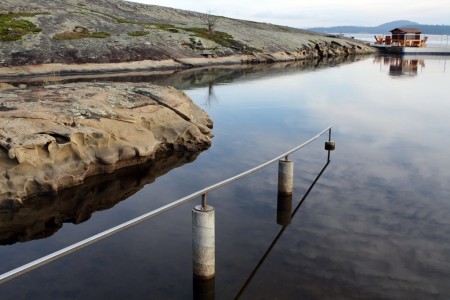
In brief, I am starting a new group blog at BuryCoal.com. It exists primarily to make the case for leaving coal and unconventional fuels underground, where they cannot harm the climate.
The reading I have done in the last year has highlighted a few important perspectives for me, when it comes to climate change. The most important thing is humanity’s total cumulative emissions. As such, it is not enough just to use fossil fuels more efficiently. We need to stop using them long before they run out: particularly, before the world’s massive reserves of coal and unconventional fossil fuels are tapped. The warming that would arise from burning all the coal, oil sands, shale oil, and methane clathrates would be far greater than that caused by burning conventional oil and gas.
Government plans that include serious restrictions on the use of coal and unconventional fossil fuels have a chance at being compatible with avoiding dangerous climate change, while those that treat this as a side issue do not.
In order to spread the word about the importance of leaving coal and unconventional fossil fuels in the ground, I have launched a new website at BuryCoal.com. It will be accepting submissions on all matters relating to coal and unconventional fossil fuels, including extraction, air and water pollution, climate change impacts, politics and activism, and more. I don’t think there is any other site out there with its main focus on the message that these fuels must be left in the ground, for the sake of improving our chances of experiencing catastrophic or runaway climate change, and on account of the other benefits that accompany moving beyond them. Those include reduced pollution and destruction of habitat, as well as reduced dependence on fossil fuels which will inevitably run out anyhow.
I would really appreciate if visitors to this site would do three things to help with the new project:
- Please read and comment on the entries on the new site
- Please let other people know about it
- If you have something to say on a topic within the subject area, please submit a contribution
The kind of world our grandchildren and great grandchildren end up living in will depend a great deal on what proportion of these fuels we dig up and burn. BuryCoal.com has been established to be the antithesis to “Drill, Baby, Drill” and make a forceful and well-reasoned case for leaving all that carbon safely underground, while moving to a zero-carbon, renewable global energy system that can sustain human prosperity and civilization indefinitely.




